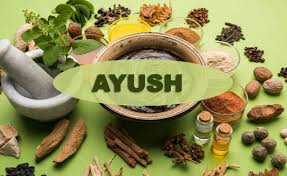
India Strengthens Global Presence of AYUSH Systems Through International Cooperation
The Ministry of Ayush has launched a comprehensive central sector scheme to promote AYUSH systems of medicine—Ayurveda, Yoga, Naturopathy, Unani, Siddha, Sowa-Rigpa, and Homoeopathy—on the global stage. Union Minister of State for Ayush, Prataprao Jadhav, shared the details of this initiative in a written response in the Rajya Sabha, emphasizing its aim to enhance awareness, foster collaboration, and boost the global reach of AYUSH practices.
This initiative is designed to elevate AYUSH as a key player in global healthcare by promoting its medical, educational, and research contributions. The scheme facilitates the international exchange of experts, strengthens stakeholder interactions, and supports Indian AYUSH manufacturers and service providers in expanding their global footprint. It also promotes academic research and training by establishing AYUSH Academic Chairs in foreign universities. These Chairs serve as hubs for research and knowledge exchange, helping to embed AYUSH practices into global healthcare systems.
Under this scheme, the Ministry of Ayush has undertaken several strategic initiatives to enhance the global recognition of AYUSH. Agreements have been signed with multiple countries to foster cooperation in traditional medicine and homoeopathy, with 24 Memorandums of Understanding (MoUs) established at the governmental level. Additionally, 15 AYUSH Academic Chairs have been set up in foreign institutions to promote research and teaching, and 42 AYUSH Information Cells have been established across 38 countries to disseminate knowledge about AYUSH systems.
In a bid to encourage international students to engage with AYUSH practices, the Ministry offers scholarships under the AYUSH Fellowship/Scholarship Program, enabling them to study in recognized institutions in India. Countries such as Bangladesh, Australia, Mauritius, Latvia, and Malaysia now host AYUSH Academic Chairs, reflecting the growing acceptance of these traditional systems of medicine.
The Ministry has also collaborated with global health organizations to integrate AYUSH into international healthcare frameworks. Efforts include advocating for the inclusion of a ‘Traditional Medicine’ chapter in the International Classification of Diseases (ICD-10 and 11) and supporting the establishment of the World Health Organization’s Global Centre for Traditional Medicine. Other initiatives, such as the celebration of International Yoga and Ayurveda Days, further bolster AYUSH’s global appeal.
The AYUSH Academic Chairs are established through bilateral agreements or partnerships with foreign institutions. Once an agreement is reached, an AYUSH expert is deputed to the host university for a period of one year, with the option to extend the term to three years. While the Ministry of Ayush covers the expert’s salary and travel costs, the host university provides rent-free accommodation and local hospitality.
The Ministry’s efforts extend beyond academic collaboration. Participation in international trade fairs, technical training sessions, and bilateral meetings has enabled AYUSH experts to share knowledge and expertise while learning from global practices. Similarly, international experts are invited to India to attend events and collaborate on research and development initiatives.
These measures position AYUSH as a critical component of India’s soft power, leveraging its rich heritage of traditional medicine to address global health challenges. By fostering collaboration, research, and cultural exchange, India aims to establish AYUSH as a vital contributor to the international healthcare landscape.